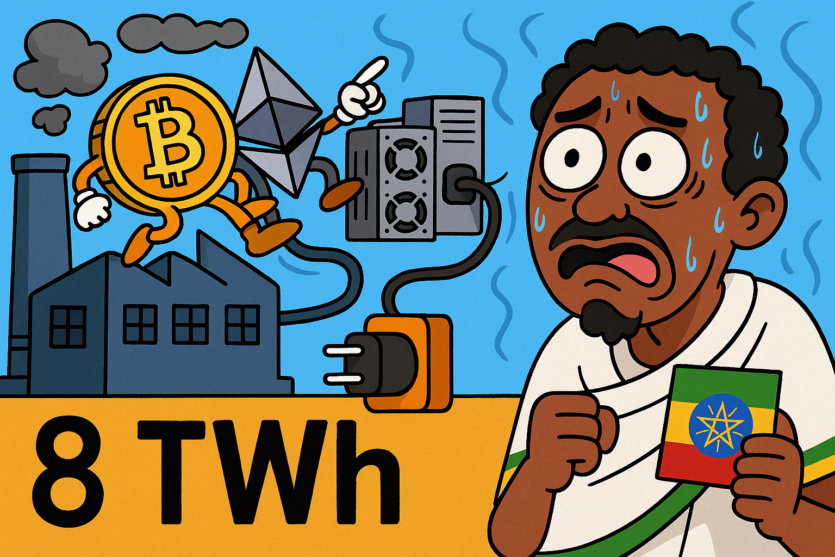
Ethiopia is facing energy problems due to crypto mining. This year, crypto mining and data centers are expected to consume a third of the country’s electricity supply in 2025. That is, the cost of this type of activity will exceed 8 terawatt-hours. This is one of the reasons why mining has been banned in Kuwait.
While crypto mining operations have been seen as a means of raising foreign exchange and developing digital infrastructure, the massive energy footprint has sparked debate over benefits and efficiency. Also, despite the large-scale infrastructure programs underway in the country, the electrification of Ethiopia has been slow.
By 2024, only 2.2 million households had been connected to the grid in five years. Almost 50% of the population does not have access to a reliable source of electricity, and only 22% have legal metered connections to the grid. In Addis Ababa, the electrification rate is around 93%, while in regions such as Afar and Somalia it is below 12%. There is also talk of increasing electricity tariffs by up to 400% by 2028.
The National Bank of Ethiopia (NBE) banned cryptocurrency trading in 2022. The following year, the government began quietly registering mining companies through its cybersecurity agency, INSA.
Meanwhile, Bhutan mined 13,029 bitcoins worth $1.3 billion. But this is done exclusively by using excess electricity in the summer.
Source: Ethiopian Energy Outlook 2025

Spelling error report
The following text will be sent to our editors: